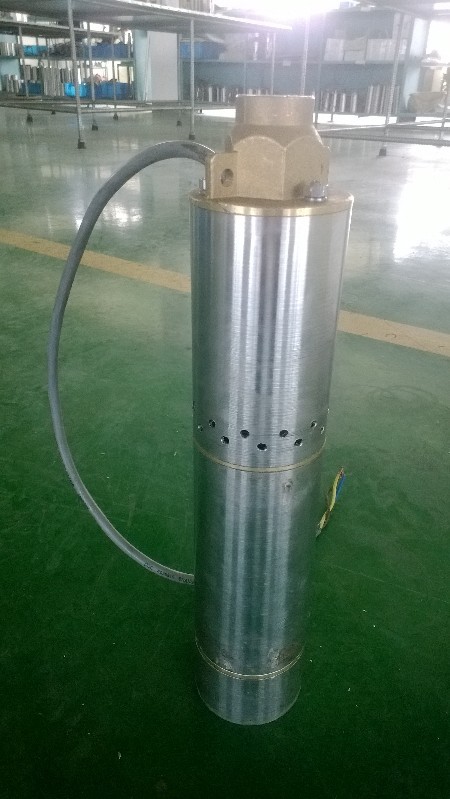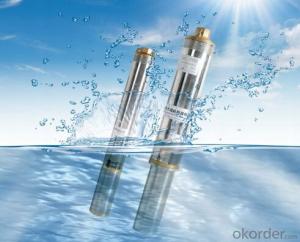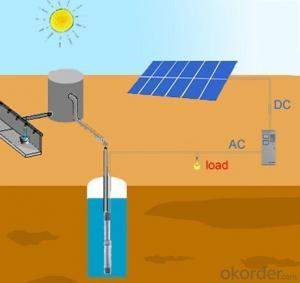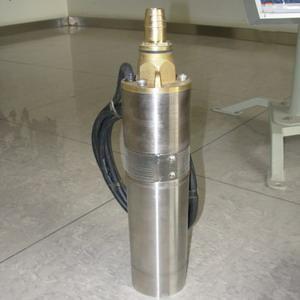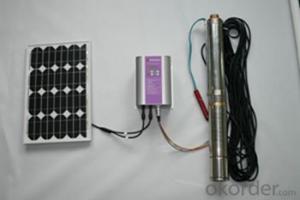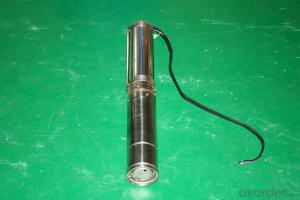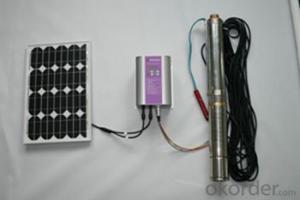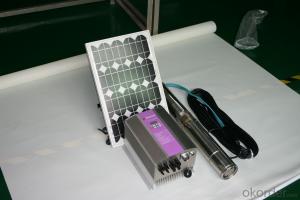Submersible Solar Water Pump with Helical Screw
- Loading Port:
- Shanghai
- Payment Terms:
- TT OR LC
- Min Order Qty:
- -
- Supply Capability:
- 300 set/month
OKorder Service Pledge
Quality Product, Order Online Tracking, Timely Delivery
OKorder Financial Service
Credit Rating, Credit Services, Credit Purchasing
You Might Also Like
how is the rotor made:
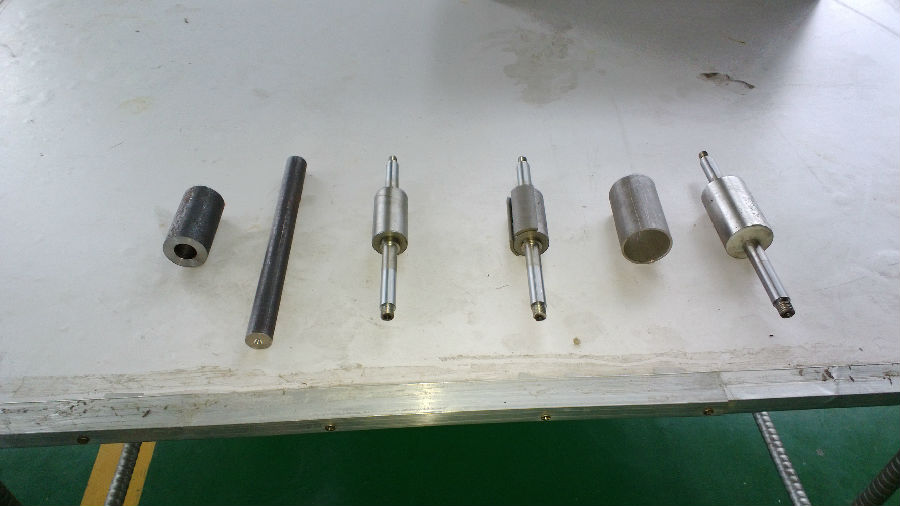
how is the motor made:
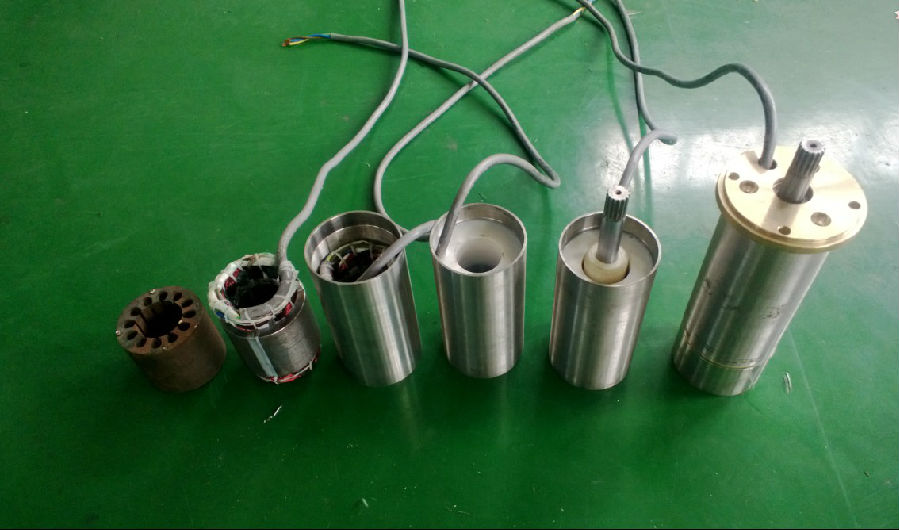
the pump :
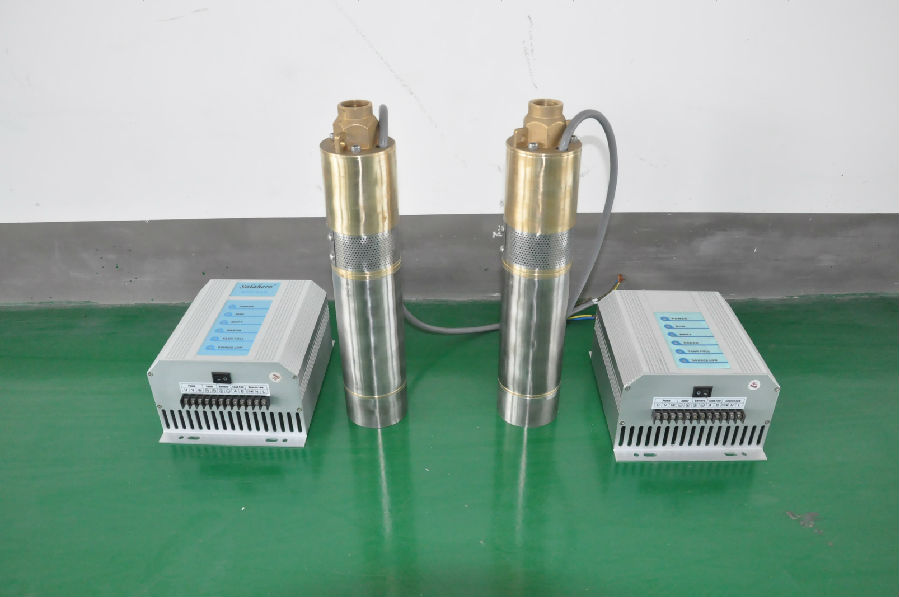
controller terminal connection:
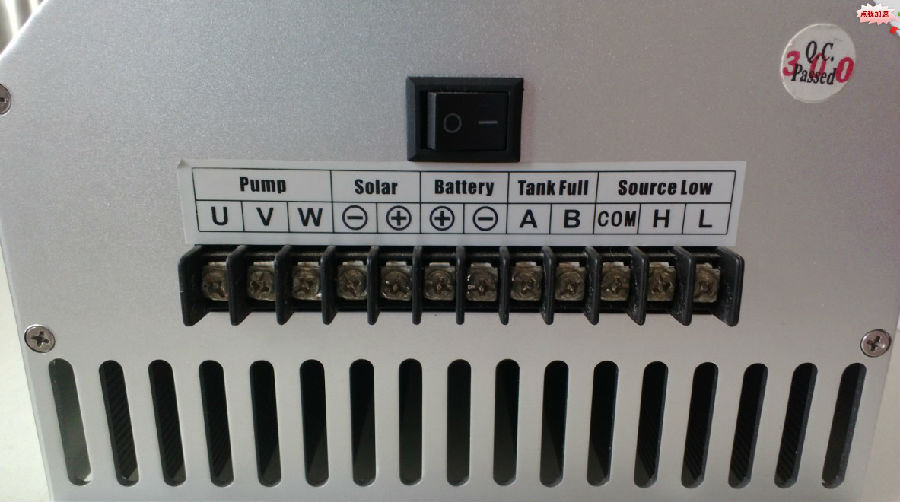
The permanent magnet:
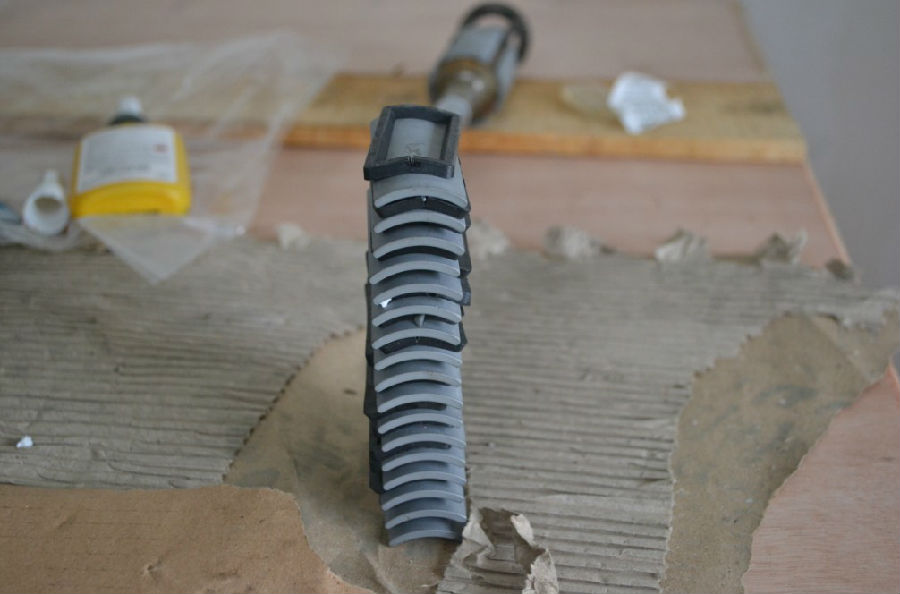
the helical screw:
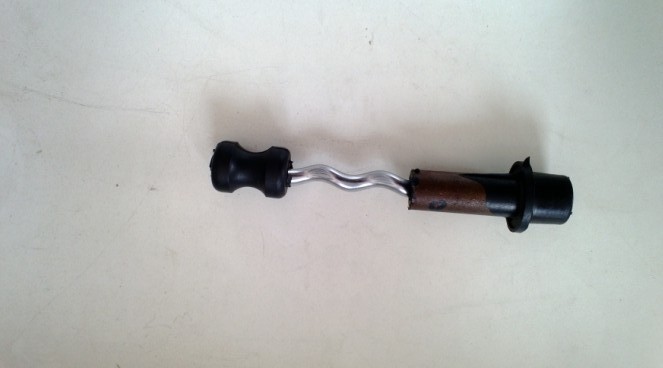
controller box:
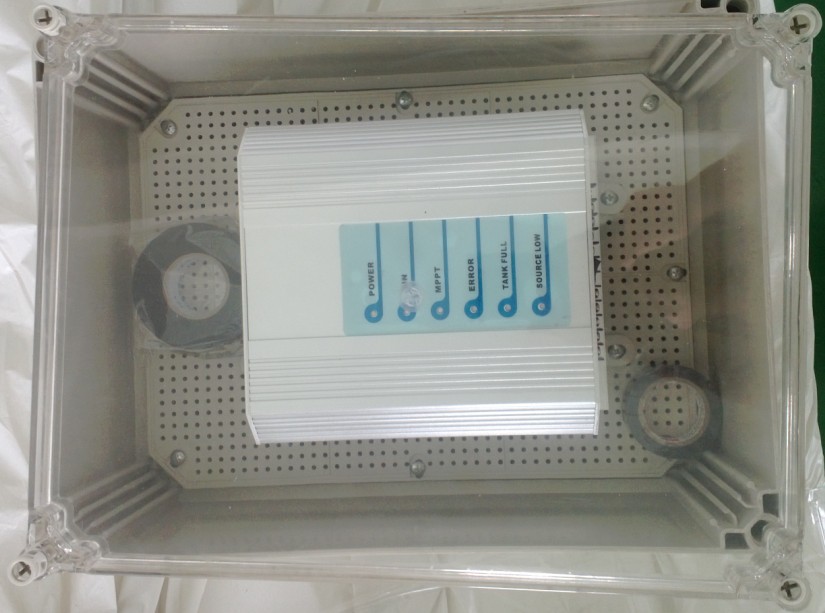
the senors:
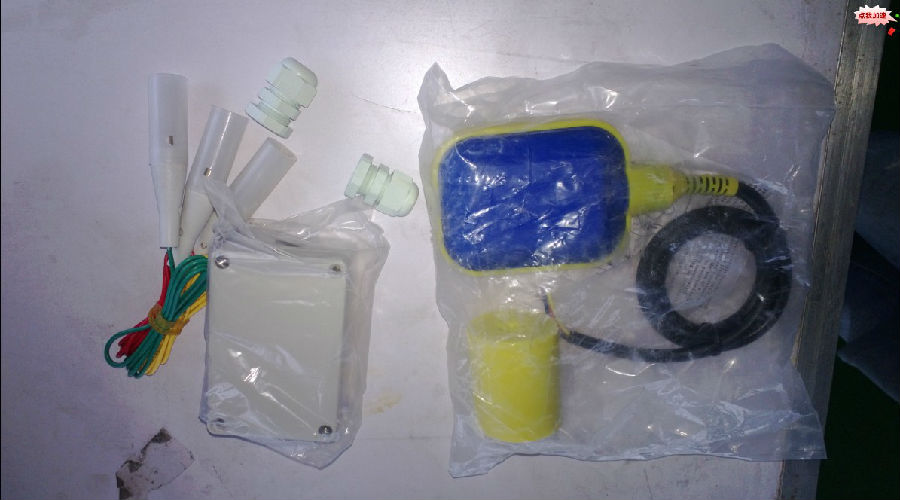
the test:
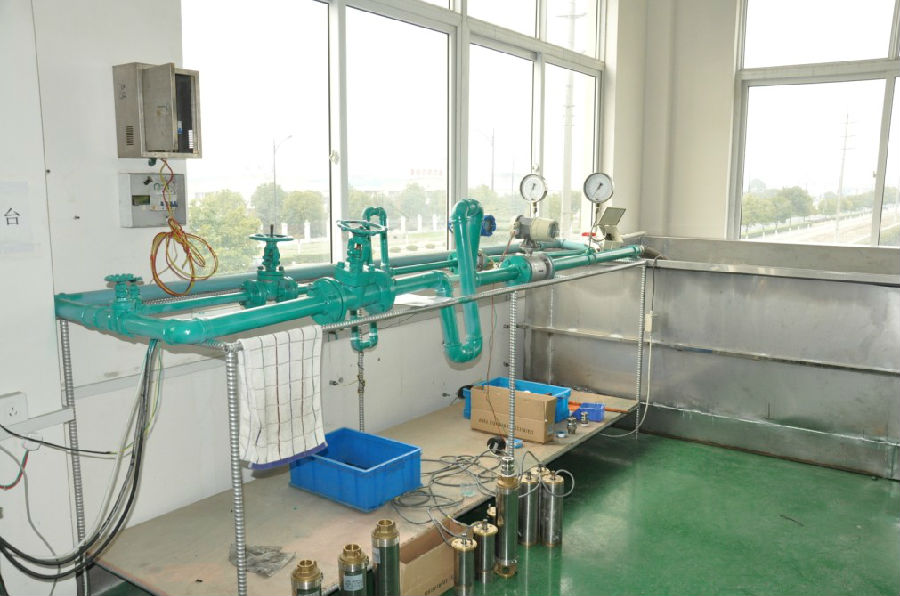
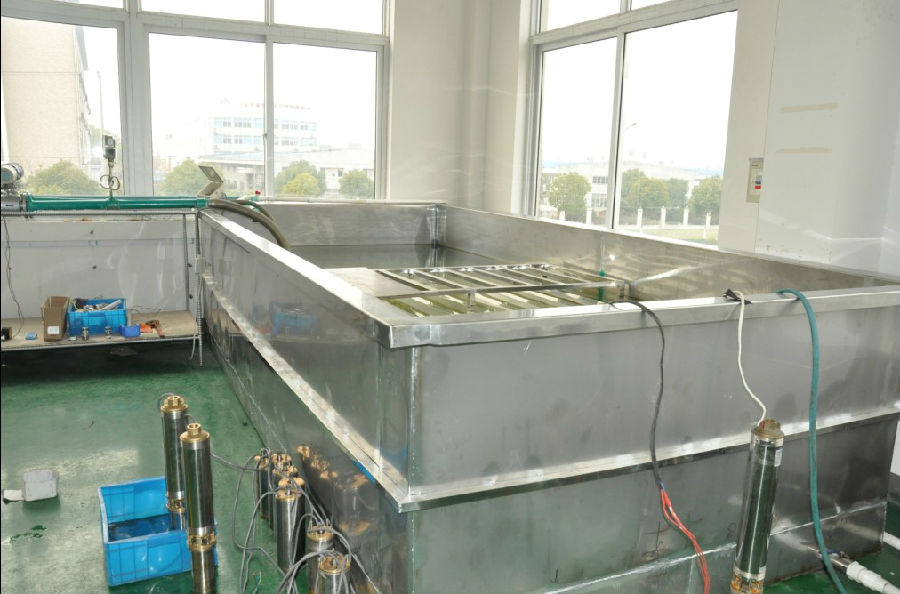
the application:
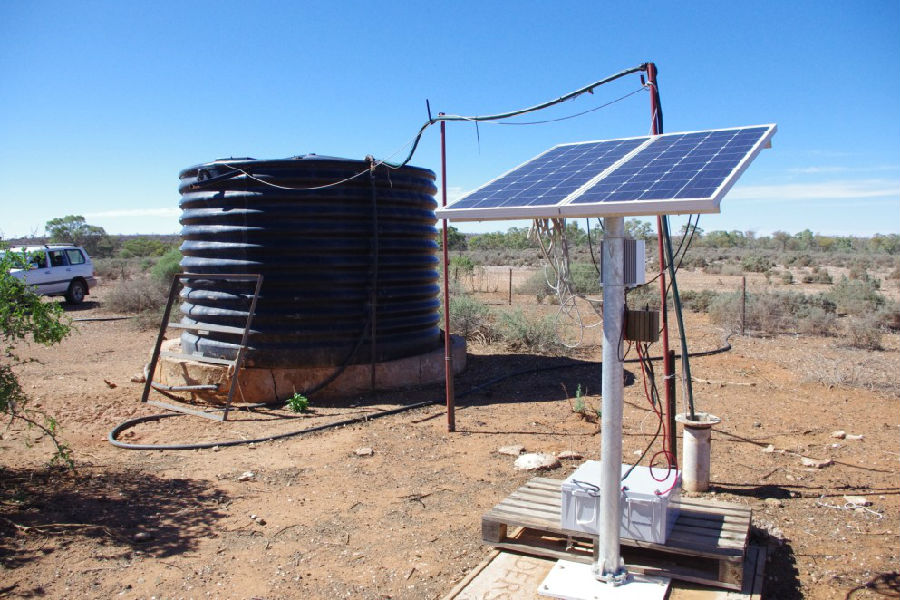
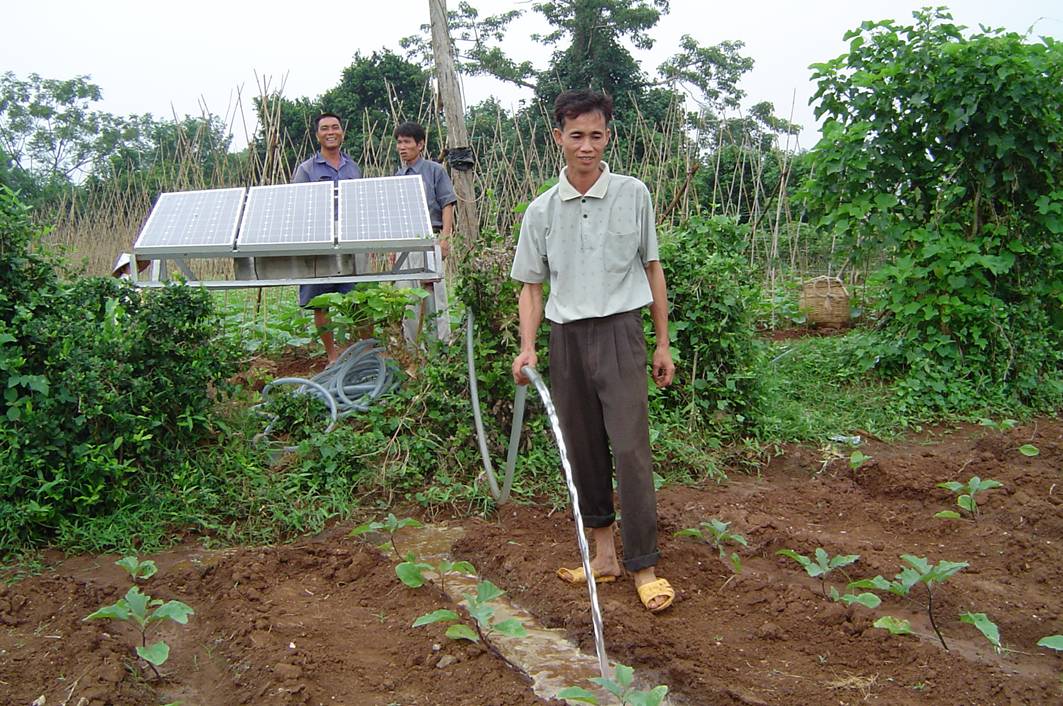
the package:
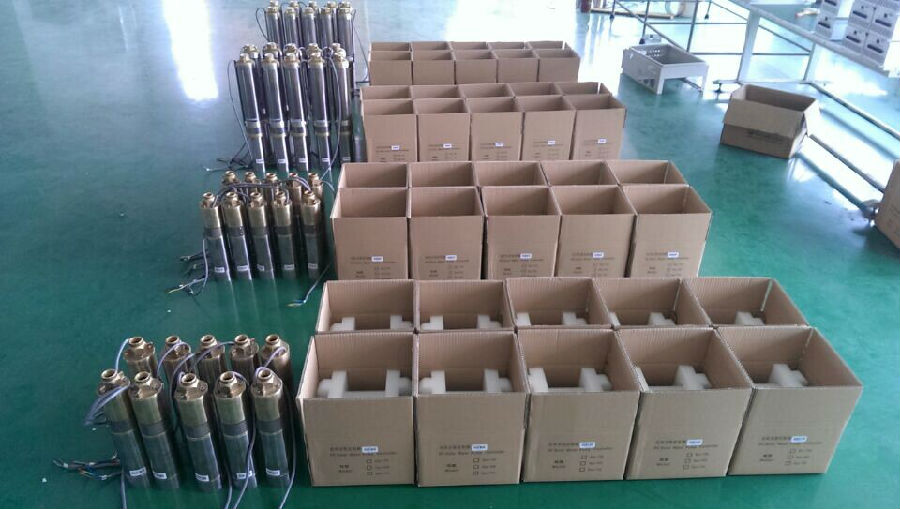
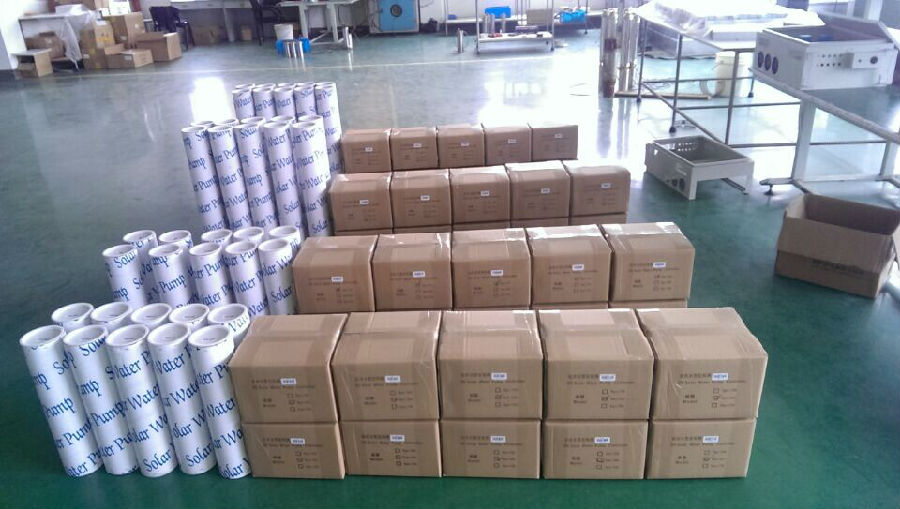
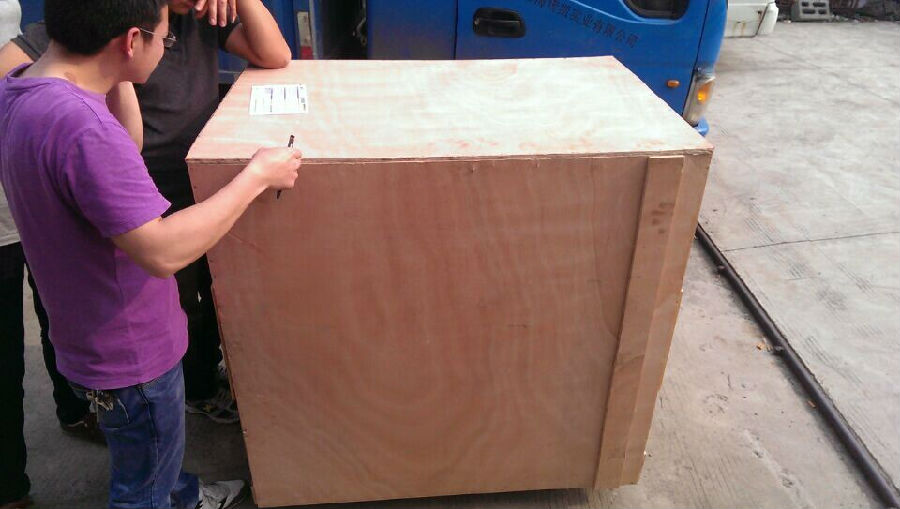
- Q: Can a solar pump be used for water supply in off-grid homes or cabins?
- Yes, a solar pump can certainly be used for water supply in off-grid homes or cabins. Solar pumps use solar energy to power the pumping mechanism, eliminating the need for electricity from the grid. This makes them an ideal solution for remote locations where access to electricity is limited or non-existent. Solar pumps can be used to extract water from wells, boreholes, or other water sources and provide a reliable and sustainable water supply. They are cost-effective, environmentally friendly, and require minimal maintenance. Additionally, solar pumps can be combined with storage systems to ensure a constant water supply even during periods of low sunlight. Overall, using a solar pump for water supply in off-grid homes or cabins offers a practical and efficient solution that aligns with sustainable and self-sufficient living.
- Q: Can a solar pump be used for mine dewatering or industrial applications?
- Yes, a solar pump can be used for mine dewatering or industrial applications. Solar pumps are becoming increasingly popular in these sectors due to their numerous advantages. Firstly, solar pumps are powered by the sun, making them a sustainable and environmentally friendly choice. This is particularly important for mine dewatering and industrial applications, where reducing carbon emissions and minimizing the impact on the environment is crucial. Secondly, solar pumps are cost-effective in the long run. While the initial installation costs may be higher compared to traditional pumps, solar pumps have lower operational and maintenance costs. They do not require fuel or electricity to operate, which significantly reduces ongoing expenses. Furthermore, solar pumps are highly reliable and can operate in remote locations with limited access to electricity grids. This makes them suitable for mine dewatering in areas where there is no reliable power supply or for industrial applications in remote regions. Solar pumps are also easy to install and can be quickly deployed, which is particularly beneficial for temporary or emergency dewatering needs in mines or industrial sites. Additionally, solar pumps can be equipped with advanced monitoring and control systems, allowing for remote operation and real-time data monitoring. This improves efficiency, reduces downtime, and enhances the overall management of the dewatering or industrial processes. In conclusion, a solar pump can indeed be used for mine dewatering or industrial applications. Their sustainability, cost-effectiveness, reliability, and adaptability to remote locations make them an attractive option for these sectors.
- Q: Can a solar pump be used for water supply in a hospital or healthcare facility?
- Water supply in hospitals or healthcare facilities can be achieved using a solar pump. This type of pump is known for its reliability and sustainability, making it ideal for areas with limited or no access to electricity. By utilizing solar energy, which is abundantly available throughout the day, solar pumps can efficiently extract water from boreholes, wells, or rivers and supply it to the facility. The use of solar pumps offers numerous advantages for water supply in healthcare settings. Firstly, they are cost-effective as they eliminate the need for electricity or fuel, resulting in long-term operational cost savings. Moreover, solar pumps are environmentally friendly, emitting zero greenhouse gases and reducing reliance on fossil fuels. Additionally, they require minimal maintenance compared to traditional pumps, which translates to reduced downtime and repair expenses. Reliable water supply is of utmost importance in hospitals and healthcare facilities to ensure proper sanitation, hygiene, and patient care. Solar pumps excel in providing a consistent and uninterrupted water supply, even during power outages or in remote areas. Through careful sizing and design, solar pumps can effectively meet the water demand of healthcare facilities, including drinking water, sanitation, and medical equipment sterilization. However, it is crucial to evaluate the specific water requirements of the facility before installing a solar pump. Factors such as water demand, peak load, storage capacity, and water quality must be taken into account to ensure that the solar pump system meets the facility's needs. Additionally, regular maintenance and monitoring are essential to optimize the performance and lifespan of the solar pump system. In conclusion, a solar pump is a viable option for water supply in hospitals or healthcare facilities. It offers a sustainable, cost-effective, and reliable solution, guaranteeing the smooth functioning and delivery of care in healthcare settings.
- Q: How does a solar pump help in reducing electricity bills?
- A solar pump reduces electricity bills by utilizing the energy from the sun to power the pump, eliminating the need for grid electricity. This renewable energy source is free and abundant, allowing users to save on their electricity costs.
- Q: Are there any restrictions on the use of a solar pump in residential neighborhoods?
- There may be restrictions on the use of a solar pump in residential neighborhoods, depending on local regulations and homeowner association rules. It is important to check with the local authorities or neighborhood association to determine if there are any specific restrictions or requirements for using a solar pump. Some potential restrictions could include noise limitations, height restrictions, or aesthetic considerations. Additionally, permits or approvals may be required before installing a solar pump in a residential area. It is always advisable to consult with the relevant authorities or neighborhood association to ensure compliance with any restrictions or guidelines in place.
- Q: Can solar pumps be used for water supply in mining or construction sites?
- Yes, solar pumps can be used for water supply in mining or construction sites. These pumps are efficient, reliable, and environmentally friendly as they harness solar energy to operate. They can help provide a steady and cost-effective water supply for various applications such as dust suppression, equipment cooling, and personnel needs in remote or off-grid locations.
- Q: What is the installation process for a solar pump?
- The installation process for a solar pump typically involves the following steps: 1. Site Assessment: Determine the optimal location for the solar panels and pump system by considering factors such as sunlight exposure, water source proximity, and accessibility. 2. Mounting the Solar Panels: Install the solar panels in a location where they can receive maximum sunlight exposure, typically on a roof, ground-mounted rack, or pole mount. 3. Wiring and Connection: Connect the solar panels to the pump controller using appropriate wiring and connectors. Ensure proper polarity and secure connections to avoid any electrical issues. 4. Mounting the Pump: Install the pump in the desired location, ensuring it is securely anchored. Connect the pump to the water source, such as a well or water storage tank. 5. Installing the Pump Controller: Mount the pump controller near the solar panels, ensuring it is protected from harsh weather conditions. Connect the pump, solar panels, and batteries (if applicable) to the controller. 6. Testing and Commissioning: Test the system by turning on the pump and checking for proper functionality. Adjust settings on the pump controller, such as flow rate or pressure, as needed. 7. Maintenance and Monitoring: Regularly inspect and clean the solar panels to maintain their efficiency. Monitor the system's performance, including water flow, power generation, and battery charge (if applicable), to ensure optimal operation. It is important to note that the specific installation process may vary depending on the type and model of the solar pump system and local regulations. It is advisable to consult the manufacturer's installation guidelines or seek professional assistance for a successful installation.
- Q: Are there any limitations to the size of the water reservoir that a solar pump can fill?
- Yes, there are limitations to the size of the water reservoir that a solar pump can fill. The size of the reservoir is limited by the capacity of the solar pump and the amount of sunlight available to power it. If the pump is not powerful enough or if there is limited sunlight, it may not be able to fill a large reservoir efficiently or at all. Additionally, factors such as the distance between the pump and the reservoir, the elevation, and the presence of any obstacles can also affect the pump's ability to fill a larger reservoir.
- Q: What is the maximum temperature a solar pump can handle?
- The maximum temperature that a solar pump can withstand may differ based on the specific model and manufacturer. Nevertheless, most solar pumps are generally built to endure temperatures ranging from 50-60 degrees Celsius (122-140 degrees Fahrenheit). To determine the exact maximum temperature rating for a particular solar pump model, it is crucial to consult the manufacturer's product specifications. Moreover, it is recommended to install the pump in a location that reduces exposure to extreme temperatures and guarantees sufficient ventilation for optimal performance and longevity.
- Q: Can solar pumps be used for water supply in remote agricultural or farming communities?
- Yes, solar pumps can be effectively used for water supply in remote agricultural or farming communities. Solar pumps are an efficient and sustainable solution that utilize solar energy to power the pumps, eliminating the need for electricity or fuel. This makes them highly suitable for remote areas where access to electricity or fuel may be limited or expensive. Solar pumps provide a reliable and cost-effective means of extracting water from sources such as wells, rivers, or lakes, enabling farmers and communities to access water for irrigation, livestock, and general water needs. Additionally, solar pumps have low maintenance requirements and can operate independently, making them ideal for remote areas with limited infrastructure and technical expertise.
Send your message to us
Submersible Solar Water Pump with Helical Screw
- Loading Port:
- Shanghai
- Payment Terms:
- TT OR LC
- Min Order Qty:
- -
- Supply Capability:
- 300 set/month
OKorder Service Pledge
Quality Product, Order Online Tracking, Timely Delivery
OKorder Financial Service
Credit Rating, Credit Services, Credit Purchasing
Similar products
Hot products
Hot Searches
Related keywords

